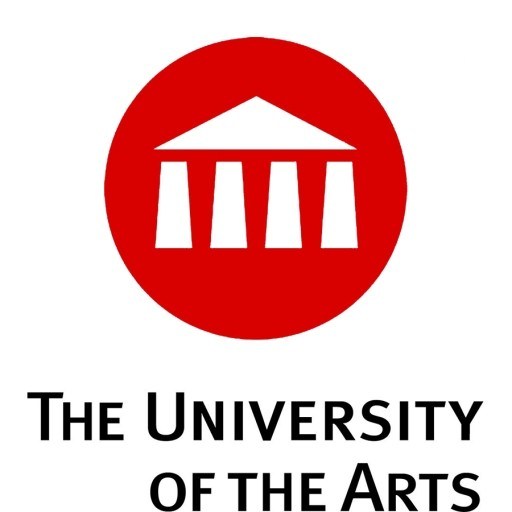Photos of university / #georgiatech
Industrial Design at Georgia Institute of Technology offers a comprehensive and innovative educational experience aimed at cultivating creative, technical, and analytical skills necessary for designing effective and aesthetic products, systems, and environments. The program emphasizes a user-centered approach, integrating principles of engineering, art, and technology to prepare students for diverse careers in the design industry. Students engage in a rigorous curriculum that combines theoretical coursework with hands-on projects, fostering critical thinking, problem-solving, and prototyping abilities essential for a successful design practitioner. Throughout their studies, students explore topics such as human factors, ergonomics, material properties, manufacturing processes, sustainable design practices, and digital fabrication techniques. The program encourages collaboration across disciplines and promotes exposure to real-world challenges through partnerships with industry leaders and internships. State-of-the-art laboratories and workshops provide students with access to the latest tools like 3D modeling software, laser cutters, CNC machines, and virtual reality environments, enabling them to develop innovative concepts from ideation to implementation. The curriculum also emphasizes the importance of visual communication, storytelling, and branding to effectively present design ideas. Graduates of the program are equipped to pursue careers in product design, user experience, interaction design, and entrepreneurial ventures, contributing to advancements in consumer goods, medical devices, transportation, and sustainable solutions. Georgia Tech’s Industrial Design program aims to produce visionary designers who not only create aesthetically compelling products but also ensure functionality, usability, and environmental responsibility, making a positive impact on society and the environment.
| Wellness | ||
| APPH 1040 | Sci Foundation of Health | 2 |
| or APPH 1050 | Sci of Phys Act & Health | |
| Core A - Essential Skills | ||
| ENGL 1101 | English Composition I | 3 |
| ENGL 1102 | English Composition II | 3 |
| MATH 1552 | Integral Calculus | 4 |
| Core B - Institutional Options | ||
| CS 1315 | Intro Media Computation | 3 |
| Core C - Humanities | ||
| Any HUM | 3 | |
| COA 2242 | History of Art II | 3 |
| Core D - Science, Math, & Technology | ||
| Lab Science | 4 | |
| PHYS 2211 | Intro Physics I 1 | 4 |
| MATH 1551 | Differential Calculus | 2 |
| MATH 1553 | Intro to Linear Algebra | 2 |
| Core E - Social Sciences | ||
| Select one of the following: | 3 | |
|
HIST 2111 |
United States to 1877 | |
|
HIST 2112 |
United States since 1877 | |
|
INTA 1200 |
American Government | |
|
POL 1101 |
Government of the U.S. | |
|
PUBP 3000 |
US Constitutional Issues | |
| Any SS | 9 | |
| Core F - Courses Related to Major | ||
| ID 1011 | Ind Des Fundamentals 1 | 2 |
| ID 1012 | Ind Des Fundamentals 2 | 2 |
| ID 1101 | Intro Industrial Des 1 | 1 |
| ID 1102 | Intro Industrial Des 2 | 1 |
| ID 1401 | Intro Graphic Comm 1 | 1 |
| ID 1402 | Intro Graphic Comm 2 | 1 |
| ID 1418 | Intro Sketch & Model 1 | 1 |
| ID 1419 | Intro Sketch & Model 2 | 1 |
| ID 2021 | ID Studio 1 | 4 |
| ID 2022 | ID Studio 2 | 4 |
| Major Requirements | ||
| ID 2202 | Hist-Modern Indust Dsgn | 3 |
| ID 2320 | Human Factors in Design | 3 |
| ID 2401 | Visual Design Thinking | 3 |
| ID 3031 | Health Des Studio 1 | 4 |
| or ID 3041 | Product Dev Studio 1 | |
| or ID 3051 | Interactive ID Studio 1 | |
| ID 3032 | Health Des Studio 2 | 4 |
| or ID 3042 | Product Dev Studio 2 | |
| or ID 3052 | Interactive ID Studio 2 | |
| ID 3103 | Indust Dsgn Computing I | 3 |
| ID 3104 | Indust Dsgn Computing II | 3 |
| ID 3301 | Materials I | 3 |
| ID 3302 | Materials II | 3 |
| ID 4061 | ID Capstone Des Studio 1 | 4 |
| or ID 4071 | Invention Studio 1 | |
| or ID 4081 | ID/ME Colab Des Studio 1 | |
| ID 4062 | ID Capstone Des Studio 2 | 4 |
| or ID 4072 | Invention Studio 2 | |
| or ID 4082 | ID/ME Colab Des Studio 2 | |
| ID 3320 | Design Methods | 3 |
| ID 4206 | Culture of Objects | 3 |
| Departmental Electives | ||
| Any ID course | 12 | |
| Free Electives | ||
| Free Electives | 12 | |
| Total Credit Hours | 130 | |
Pass-fail only allowed for Free Electives.
| 1 |
If PHYS 2231 (5 credit hours) is taken, excess hour applies to Free Electives. |
Requirements
- The non-refundable freshman application fee is $75 (international applicants: $85). Students who pay an application fee but do not submit an application will not have their fee refunded.
- Included with the Common Application and Georgia Tech Questions is one long essay and two short answer essays. The purpose of the essays is to assess your writing ability and, more importantly, to learn more about you as an individual. This portion of the application helps us get to know you, assess mutual fit and better understand what you could contribute to Georgia Tech.
- TOEFL or IELTS scores
- We will only accept one (1) recommendation from your counselor and one (1) from the teacher of your choice. Any additional recommendations will not be considered with your application.
- Interview
- The GPA we consider is the one taken directly from your high school transcript. We will use a 100 point GPA, if available, and weighted, if available. If not, we’re happy to consider a 4.0 GPA or similar and/or unweighted GPA.
- If your high school does not provide a GPA or you have attended multiple high schools, we will recalculate a weighted 4.0 GPA (0.5 points added for AP, IB, Dual Enrollment & AICE courses) using core courses only.
- To help us better understand your high school and its curriculum, your counselor will submit a School Report form and/or School Profile with your transcript.
- The University System of Georgia requires minimum academic courses of all first time students, though most applicants exceed those in at least one area. USG requirements include:
- English - 4 Units
- Math - 4 Units
- Science - 4 Units
- Social Science - 3 Units
- Foreign Language - 2 Units
The Bachelor of Science in Industrial Design at Georgia Institute of Technology offers a range of financing options to support students throughout their academic journey. Undergraduate students at Georgia Tech typically have access to a combination of scholarships, grants, federal and state financial aid, work-study opportunities, and private loans. Scholarships are awarded based on academic achievement, portfolio review, leadership, and other merit-based criteria, and are available through university-affiliated programs as well as external organizations. Grants such as the Federal Pell Grant and state-specific aid programs provide need-based financial support, reducing the financial burden for qualifying students.
Georgia Tech also participates in federal work-study programs, enabling students to work part-time on campus or in community service roles, thereby earning income to help finance their education. Additionally, many students utilize federal student loans, including Direct Subsidized and Unsubsidized Loans, which offer relatively low interest rates and flexible repayment options. Private loans are also an option, often through third-party lenders, for students who need additional funds beyond federal aid.
The university's financial aid office provides comprehensive counseling and resources to help students understand their options, complete the Free Application for Federal Student Aid (FAFSA), and navigate the application process for scholarships and loans. Georgia Tech encourages early financial planning to maximize available resources and to explore any specific programs aimed at design students, such as specialized scholarships or bursaries linked to the School of Design. The university is committed to maintaining transparency regarding costs and available financial aid packages, ensuring that students and families are well-informed.
Overall, financing a degree in Industrial Design at Georgia Tech involves leveraging a variety of financial aid avenues to make higher education accessible and affordable. It’s advisable for prospective students to actively seek available scholarships, complete relevant aid applications, and consult university resources to plan their finances effectively. The goal is to minimize financial stress and enable talented students from diverse backgrounds to pursue their passion for design without undue economic hardship.
The Georgia Institute of Technology offers a Bachelor of Science degree in Industrial Design through its College of Design. The program emphasizes a comprehensive education that combines creative design skills with practical engineering and research methods to prepare students for careers in product and interaction design. Students in the program learn to develop innovative solutions for various industries, including consumer electronics, medical devices, transportation, and household products. The curriculum integrates foundational courses in design principles, human factors, ergonomics, and sustainability, alongside technical skills such as computer-aided design (CAD), prototyping, and manufacturing processes.
Throughout their studies, students engage in collaborative projects, often working with industry partners, to develop real-world solutions and portfolios that showcase their abilities. The program also emphasizes user-centered design and the importance of understanding user needs and behaviors, integrating ergonomic principles with aesthetic considerations. Students have access to state-of-the-art laboratories and workshops equipped with advanced tools for digital modeling, rapid prototyping, and material experimentation. The faculty includes practicing designers and researchers who bring industry insights and academic rigor to the classroom.
Georgia Tech’s location in Atlanta provides a vibrant environment for internships, industry partnerships, and networking opportunities with leading design and technology companies. The program encourages students to participate in design competitions and exhibitions, fostering professional recognition and experience. Upon graduation, students are well-equipped to pursue careers in industries such as furniture design, transportation, consumer product innovation, and more, with many graduates also choosing to continue their education at the graduate level in design or related fields. The program preparation aims to produce well-rounded designers with strong technical skills, creativity, and a focus on sustainable and human-centric solutions.









